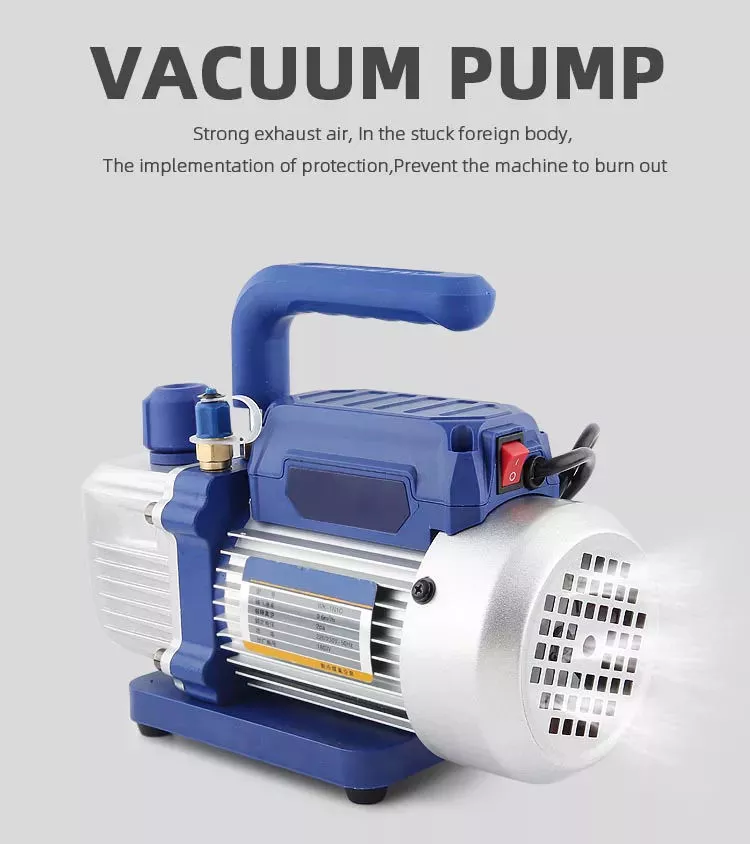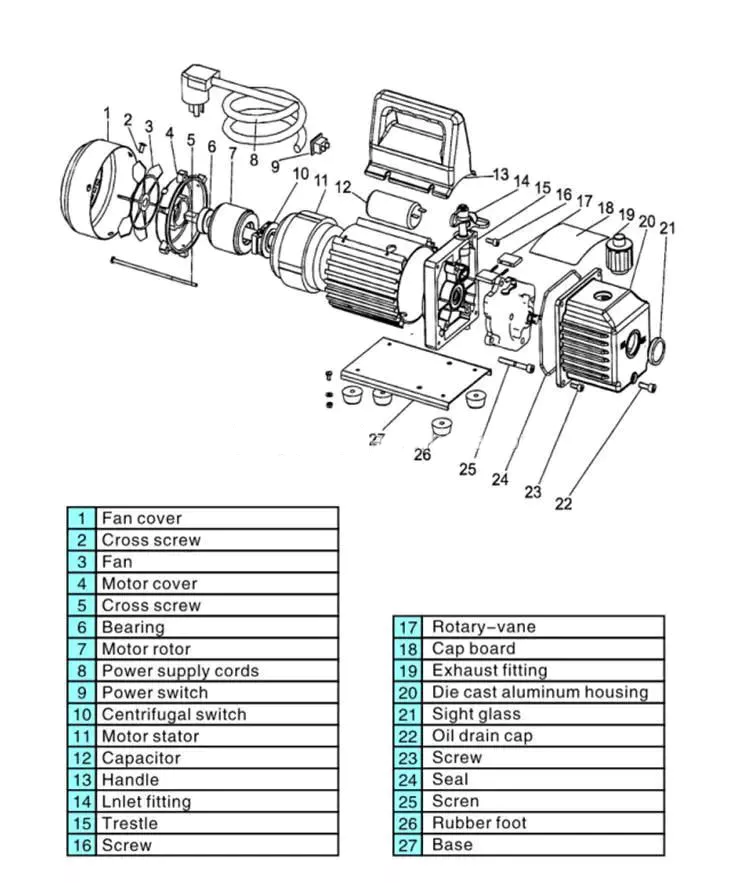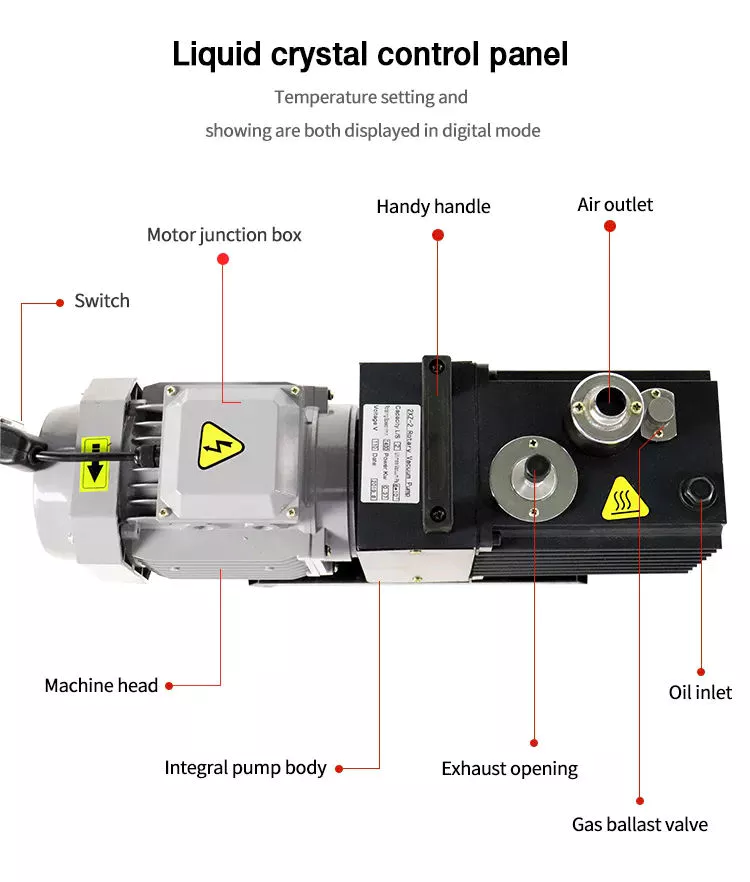Product Description
Wholesale XGB-370 Copper Motor Machine 380V Peripheral Vacuum Pump for Agriculture and Restaurant
Our Services
· Customizing the fans according to customers’ requirements.
· Delivery time for sample order: 1-5 days, for pallets order 7-20 days after receiving clear payment
· Warranty: 1 year for repairing or replacement of fans, customs duty & freight not included
FAQ
Q: How To Order ?
A: Step 1, please tell us what model and quantity you need;
Step 2, then we will make a PI for you to confirm the order details;
Step 3, when we confirmed everything, can arrange the payment;
Step 4, finally we deliver the goods within the stipulated time.
Q: What is the MOQ?
R: 100 pieces, accept sample.
Q: When you ship my order
R: Normally container need 15-40days, sample 3-7DAYS
Q: How about the quality guarantee period?
R: One year.
Q: Do you have the certificates?
R: Yes, we have passed the CE and CCC certification.
Q: Do you offer ODM & OEM service.
R: Yes, we can custom design for specific application.
Q: When can I get the quotation?
R:We usually quote within 24 hours after we get your inquiry. If you are urgent to get the price, please send the message on trade management or call us directly.
Q: How can I get a sample to check your quality?
R:After price confirmed, you can require for samples to check quality.
If you need the samples, we will charge for the sample cost. But the sample cost can be refundable when your quantity of first order is above the MOQ
Q: What is your main market?
R:Southeast Asia, South America,Middle East.North America,EU
After-sales Service
1 year warranty for all kinds of products;
If you find any defective accessories first time, we will give you the new parts for free to replace in the next order, as an experienced manufacturer, you can rest assured of the quality and after-sales service.
Established in 1998,DET motor is a professional manufacturer and exporter that is concerned with the design, development and production of motors. We are located in ZheJiang city, with convenient transportation access. All of our products comply with international quality standards and are greatly appreciated in a variety of different markets throughout the world.
We have over 550 employees, an annual sales figure that exceeds USD300,000,000 and are currently exporting 50% of our production worldwide. Our well-equipped facilities and excellent quality control throughout all stages of production enables us to guarantee total customer satisfaction.
As a result of our high quality products and outstanding customer service, we have gained a global sales network CZPT European.
If you are interested in any of our products or would like to discuss a custom order, please feel free to contact us. We are looking CZPT to forming successful business relationships with new clients around the world in the near future.
| Transfer | FOB/CIF |
| Payment | TT/LC/VISA/MASTER |
| Port | ZheJiang /HangZhou/HangZhou/HangZhou |
|
Shipping Cost:
Estimated freight per unit. |
To be negotiated |
|---|
| After-sales Service: | Online |
|---|---|
| Warranty: | 1 Year |
| Oil or Not: | Oil Free |
| Samples: |
US$ 59/Piece
1 Piece(Min.Order) | Order Sample |
|---|
| Customization: |
Available
|
|
|---|
How to check the vacuum pump
A vacuum pump is a machine that draws gas molecules from a volume and maintains a partial vacuum. Its main job is to create a relative vacuum within the stated capabilities. If your vacuum pump isn’t working properly, it may need service. Read on to learn more about the types of vacuum pumps and how to check them.
Principle of industrial vacuum pump
Industrial vacuum pumps are used in industrial processes that require vacuum. These pumps are designed to generate, improve and maintain vacuum. Learn about the different types of industrial vacuum technology. You can start by reading about the most common types of industrial vacuum pumps. These pumps can be used in a variety of industrial processes from cleaning to manufacturing.
Regardless of the technology used to manufacture these pumps, the basic principles behind their operation are the same. The speed and mass flow of the pump will determine its capacity and suitability. A faster flow rate will minimize the time it takes for the machine to empty. Another important factor to consider is the type of vacuum you need.
A liquid ring vacuum pump is an industrial pump that uses a ring of liquid to form a seal. This type of pump is best suited for applications with high vapor loads and high liquid carry-over. Liquid ring vacuum pumps can be divided into two categories: liquid ring vacuum pumps and scroll vacuum pumps.
Industrial vacuum pumps work by removing gas molecules from a chamber. The partial vacuum created allows material to flow through the void. As more molecules are removed, the pressure in the chamber decreases, releasing energy that can be used for a variety of different purposes.
The most common use of industrial vacuum pumps is for electric lights. In these lamps, a vacuum pump removes the gas, causing the bulb to light up. Energy from the vacuum is also used in aircraft to power instruments. In addition to powering industrial vacuum cleaners, they are used in a variety of other environments.
High-performance industrial vacuum systems require specific materials that can withstand extreme pressure. This means that the materials used in these systems need to be properly checked. They must also be free of organic debris and other contaminants before they can be safely placed in the chamber.
Types of vacuum pumps
There are various types of vacuum pumps. Which one to choose should depend on the purpose of the pump and the degree of vacuum that must be achieved. It is mainly divided into three categories: rough vacuum or low vacuum, high vacuum and ultra-high vacuum. They all have varying degrees of scarcity. The higher the pressure, the fewer molecules per cubic centimeter. This in turn improves vacuum quality.
The vacuum pump is critical to the operation of the vacuum system. These devices are divided into three main categories according to their working pressure range. These pumps have different characteristics and technologies that make them ideal for specific applications. The choice of vacuum pump required for a particular application depends on how much vacuum you need, and how much power you are willing to spend.
Vacuum pumps are used in a variety of industrial and scientific processes. Their main function is to remove gas molecules from the sealed volume, leaving a partial vacuum. There are many different types of vacuum pumps, including rotary piston, liquid ring and scroll vacuum pumps. In addition, turbomolecular pumps are used.
Dry vacuum pumps are more expensive than wet vacuum pumps. Wet vacuum pumps use oil as their lubricating fluid. Different types of oils are used depending on the application. Some wet pumps have additional features, including contaminant filtration. However, wet systems have one major disadvantage: the contact between oil and fluid. To avoid this, oil separators are usually used.
There are several different types of vacuum pumps. The basic type is the positive displacement pump. It operates by expanding the chamber and removing gas molecules. The intake valve draws fluid into the chamber, while the exhaust valve opens when the chamber is at maximum expansion. This cycle repeats several times per second. Positive displacement pumps are often used in multistage vacuum systems.
Maintenance of vacuum pump
Regular maintenance is very important to ensure the long-term effective use of the vacuum pump. One way to ensure proper pump performance is to change the oil regularly. Pump oil may be contaminated by vapor condensation. To avoid this problem, close the inlet valve for 20 to 30 minutes before applying vacuum. It is also important to install an inlet cold trap to protect the pump from corrosive vapors.
Another way to prolong the life of your vacuum pump is to periodically remove any solvent in it. This step reduces internal corrosion and prevents premature pump failure. During maintenance, be sure to disconnect the power supply to the vacuum pump. After cleaning, store it in a dry and safe place. The pump should also be disposed of in accordance with local regulations.
Vacuum pumps may require frequent oil changes, especially when used in wet chemistry. The standard rule is to change the oil after 3,000 hours of use, but some pumps require more frequent oil changes. It is also important to clean the oil regularly, as dirty or discolored oil can affect the performance of the pump.
Vacuum pumps are often equipped with on-site glass to allow the user to visually check the oil level. Clean oil will appear transparent, while dirty oil will appear darker. Frequent oil changes are essential, as oil changes can help spot various potential problems. Changes in vacuum pump performance or strange noises are also good indicators of a problem.
After an oil change, the vacuum pump should be cleaned thoroughly with a soft cloth and mild degreaser. Oil changes should take less than ten minutes, and they will extend the life of your equipment. Additionally, the outside of the pump should be wiped with a cloth or rag.
The pump must be properly vented to avoid internal corrosion. If possible, place the pump away from hot equipment or rooms. Overheating can reduce the viscosity of the oil and cause premature pump failure. In addition, it can lead to overwork of other expensive scientific equipment. Heat can also cause cracked rubber parts and oil leaks.
Signs of damage to the vacuum pump
A bad vacuum pump can cause a variety of automotive problems, including poor fuel economy, difficult braking, undercarriage oil leaks, and faulty air conditioning. If any of these problems occur, call a mechanic to check your vehicle’s vacuum pump. You can also check the air conditioner and brake pedal to see if they are working properly.
A loud noise from the pump can also be a symptom of a malfunction. These noises are often caused by the aging and accumulated wear of specific components. If this is the case, the diaphragm, valve plate or seals may need to be replaced. However, if the noise is coming from bearings or other areas, more extensive repairs may be required. Additionally, dust and other contaminants can enter the pump chamber, which can degrade pump performance.
If the vacuum pump won’t start, it could be a blown fuse or a power or voltage problem. Other common causes are flow restrictions or improper installation at the entrance. Also, the vacuum pump may be damaged or the capacitors may be of poor quality. It’s not always easy to tell if a vacuum pump is leaking oil, but a greasy transmission can indicate a vacuum pump failure.
A leaking vacuum pump can also hiss when the car’s engine is running. If you hear it, check the hoses and connections to make sure there are no leaks. A vacuum leak may indicate a faulty vacuum pump, so you need to replace it as soon as possible.
Checking end pressure is easy, but a pressure gauge can also serve as a sign. You can also check for pump vibration by running a short procedure. Excessive vibration can be subtle, but it can greatly affect your process. If you notice excessive pump vibration, you should contact a professional immediately.
Poor pump performance can cause many problems for your company. A bad vacuum pump not only wastes material, it also damages your tools and reputation.
editor by CX 2023-05-30




